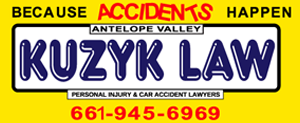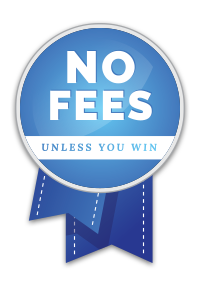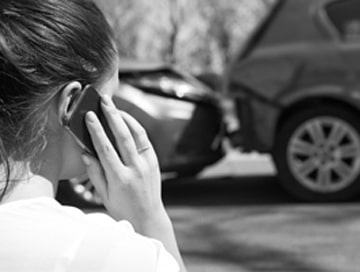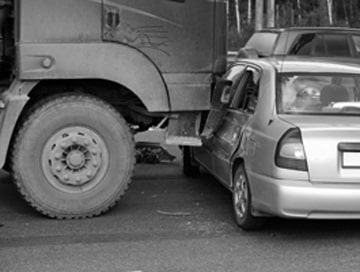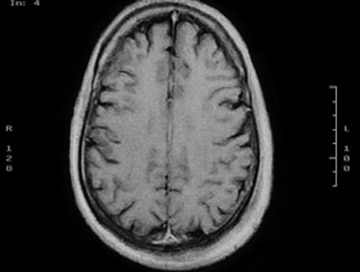Car insurance acts as a shield for drivers, protecting them from unforeseen expenses and potential financial ruin due to car crashes. In a state as populated as California, having a solid car insurance policy is a legal requirement — but what happens if you have a car accident insurance claim denied by your insurer?
This unplanned rejection causes financial strain and complicates the legal and procedural methods available. As we look deeper into this topic, we’ll learn about the complexities of California’s car insurance system and the reasons claims get denied.
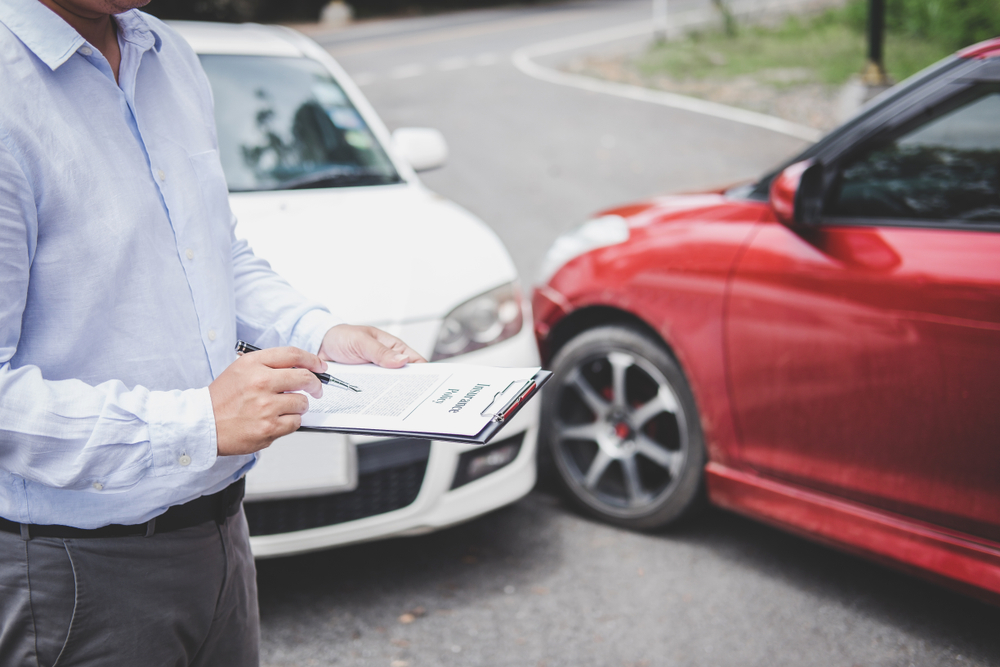
Understanding California’s Car Insurance Requirements
California, with its extensive roadways and many drivers, has specific auto insurance mandates in place to ensure its drivers’ safety and financial security. Operating in these requirements is critical for residents to prevent having their car accident claims denied.
Mandatory Coverage Requirements
California operates under a “fault” system, which means that the person responsible for causing the accident is also liable for any resulting injuries or damages. Due to this, the state mandates that all drivers have liability insurance to cover the costs of damages or injuries they might cause to others in an accident. Specifically, California drivers are required to have a minimum of:
- $15,000 for injury or death to one person
- $30,000 for injury or death to multiple people
- $5,000 for property damage
These figures represent the absolute minimum, and many drivers buy coverage beyond these amounts for added security.
Optional Coverage and its Impact on Claims
While liability coverage is mandatory, California offers optional coverages like comprehensive, collision, medical payments, and uninsured/underinsured motorist coverage. Opting for these additional coverages can significantly affect the outcome of a claim, especially in situations where the at-fault driver doesn’t have sufficient insurance or in hit-and-run incidents. For instance, if you’re in an accident with an uninsured motorist and don’t have uninsured motorist coverage, you could end up with a denied car accident claim, leaving you to bear the financial burden.
The Difference Between Fault and No-Fault States
California’s “fault” system contrasts with “no-fault” systems in other states. In a no-fault state, drivers turn to their insurance policies for compensation after an accident, regardless of who caused it. This can streamline the claims process but might also limit the amount that you can claim in a lawsuit. In California’s fault system, the at-fault party’s insurance is primarily responsible, which can lead to larger settlements. Still, there are more disputes, potentially causing you to get a car accident insurance claim denied.
Common Reasons Your Car Accident Claim Got Denied
When you’re in a car accident, especially in a busy city like Bakersfield, California, the last thing anyone expects or hopes for is for their insurance claim to get denied. However, rejections are not uncommon, and understanding why they happen can help drivers understand the process and take necessary precautions. Here are some common reasons why car accident insurance claims get denied.
Policy Exclusions and Limitations
Every insurance policy includes exclusions and limitations. An exclusion is a clause in an insurance policy that leaves out coverage for specific acts, property, types of damage, or locations. Many policies, for example, may not cover damages caused by “acts of God,” such as earthquakes or floods. In addition, if the vehicle is involved in an accident while being used for a purpose not covered by the policy, like commercial activities when only personal use has insurance coverage, the claim may get denied.
Lapsed Coverage or Non-Payment of Premium
One of the most straightforward reasons for a claim denial is lapsed coverage. If a policyholder fails to pay their premium on time, the insurance company may suspend or terminate coverage. In such cases, even if the accident happens just a day after the lapse, the insurer can deny the claim.
Reporting Delays or Incomplete Information
Accurate and timeliness are critical when reporting an accident to an insurance company. Many policies require that an accident get reported within a specific time frame. Missing this window, even if only by just a few days, can lead to claim denial.
Similarly, giving insufficient or incorrect information may result in rejection. This highlights the importance of gathering complete information at the accident scene, such as pictures, witness statements, and police reports.
Unapproved or Unauthorized Repairs
Often, insurance companies have specific protocols in place regarding vehicle repairs post-accident. They might have tie-ups with certain repair shops or need to approve a repair estimate before work begins. If a policyholder goes ahead and gets repairs done without prior authorization or at a non-approved shop, the insurer might refuse to cover the costs.
Driving Under the Influence or Illegal Activities
This reason resonates strongly with a moral and legal standpoint. If it’s determined that the policyholder was driving under the influence of alcohol or drugs at the time of the accident, the claim will likely get denied. This is because driving in such a state is not only illegal but also against the terms of most insurance policies. Similarly, if the accident occurred while the driver was engaged in illegal activities, such as street racing or evading law enforcement, the claim can be denied.
Legal Rights When Your Claim Is Denied
Dealing with a car or truck accident is already stressful, and having your insurance claim denied may compound the situation. On the other hand, claimants in California are not without legal recourse. The state has established guidelines and legislation to protect consumers and ensure that insurance companies treat them fairly. Understanding your legal rights is the first step in challenging an unfair denial.
California’s Unfair Claims Settlement Practices Act
The California Unfair Claims Settlement Practices Act is central to consumer protection. This act prohibits insurance companies from using deceptive or unfair practices when processing claims. Some of the behaviors outlined as unfair by this act include:
- Misrepresenting policy provisions
- Not acknowledging or replying promptly to communications regarding claims
- Denying claims without conducting a reasonable investigation
- Not attempting in good faith to make prompt, fair settlements
If an insurance company violates this act, it can face severe penalties, including fines and sanctions.
Right to Demand a Written Explanation for Denial
Claimants have the right to know the reasons for their denied car insurance claim. In California, if your claim gets rejected, you can demand that the insurance company provide a detailed written explanation outlining the reasons for the rejection. This gives claimants clarity and serves as vital evidence should they decide to challenge the denial.
Review by a Third-Party or State Insurance Regulator
If a claimant believes their claim got unfairly denied, they can request a third-party review. This involves an independent entity examining the facts and making a decision. Additionally, California’s Department of Insurance serves as a regulatory body overseeing insurance practices in the state. If a policyholder feels mistreated, they can file a complaint with this department, which can investigate the matter and take action if necessary.
Option to File a Lawsuit
When all else fails, claimants can seek legal recourse by filing a lawsuit against the insurance company. This can be particularly relevant in cases where the claimant believes the insurer has acted in bad faith. While taking legal action can be time-consuming and costly, successful lawsuits can result in not only the claim amount being awarded but also additional damages, especially if it’s proven that the insurer violated the Unfair Claims Settlement Practices Act.
Steps to Take After Your Claim Gets Denied
It can be unpleasant and disappointing to learn that your car accident insurance claim has been denied. While the initial reaction may be shock or anger, taking action to solve the situation is critical. Here’s what you should do if your claim gets denied in California, including a car accident lost wages claim denial.
1. Review Your Policy and Understand the Reason for Denial
Your first step should be to review your insurance policy. Understand the terms and conditions, as well as any limitations. Check that you understand what is and isn’t covered. At the same time, contact your insurance provider and request a detailed explanation for the denial. This will give you clarity and be necessary in any next steps.
2. Gather All the Necessary Documents and Evidence
Documentation is the foundation of any claim. Gather all accident-related evidence and paperwork. This includes the following:
- Photos of the accident scene and damages
- Detailed police reports
- Any medical bills or reports if you sustained injuries
- Witness statements, if available
- Any communication or correspondence with the insurance company
These documents provide a clear narrative of the incident and can support your claim.
3. Consult with a Car Accident Lawyer Specializing in Insurance Claims
If you believe the denial is unfair, speaking with a Fresno car accident attorney specializing in insurance claims is a good idea. They can give you a professional evaluation of your case, advise on your strengths and weaknesses, and guide you on the best course of action.
4. Consider Mediation or Arbitration
Think about other forms of dispute resolution, such as mediation or arbitration, before going to court. Mediation involves a neutral third party helping each side reach a mutually beneficial compromise.
Arbitration, on the other hand, is similar to a court trial but is usually less formal and faster. Based on the agreement, an arbitrator listens to both sides and decides whether it is binding or non-binding.
5. Decide on Filing a Lawsuit
If all else fails and you believe you have a strong case, you might file a lawsuit against the insurance company. You should only take this significant step after careful consideration and consultation with your attorney. Lawsuits can be time-consuming and costly, but if successful, they can result in the insurance company paying out the claim and, in cases of bad faith, potentially more in damages.
Preventing Future Claim Denials
Having experienced a car accident insurance claim denial, it’s natural to want to prevent it from happening in the future. While no foolproof method guarantees approval, specific proactive measures can significantly reduce the likelihood of another denial. Below, you’ll find some practical steps to consider taking.
Ensure Your Pay Your Premium On Time
One of the most common reasons for claim denial is lapsed coverage due to missed premium payments. Automate your payments or set reminders to ensure your policy stays active and in good standing.
Regularly Update and Review Insurance Coverage
As your life circumstances change—be it a new car, a move, or changes in your driving habits—your insurance needs may evolve too. Regularly reviewing and updating your policy ensures that you have adequate coverage. Additionally, staying informed about the specifics of your policy can help you make informed decisions in case of an accident.
Understand and Avoid Policy Exclusions
Every insurance policy has exclusions. Familiarizing with what’s not covered is essential to avoid any unpleasant surprises later. For instance, if your policy excludes damages from street racing, you’ll want to avoid such activities. Additionally, keep track of how many claims you file. Many people wonder, “How many claims are allowed in car insurance?” While California doesn’t have a set number, the more claims you file, the more hesitant they will be to pay.
Keep Documentation for All Accidents
Even if an accident seems minor, always document it. Take photos, gather witness accounts, and file a police report. Having a detailed record strengthens your claim and ensures you’re prepared should any complications arise.
Contact Kuzyk Personal Injury & Car Accidents Lawyers if Your Car Accident Insurance Claim Got Denied in California
Knowledge is power in the complex world of car insurance claims, especially in bustling cities like Bakersfield, California. Understanding the specifics of policy exclusions, the California legal environment, and the avenues available post-denial can heavily tip the scales in your favor. Remember that an insurance policy is more than just a piece of paper; it is a protection contract. However, the policyholder is frequently responsible for ensuring that this protection is not jeopardized. Never be afraid to speak up for your rights, especially when faced with difficulties. Finding professional advice can be essential if you find yourself in trouble. Kuzyk Personal Injury & Car Accidents Lawyers is prepared to guide, support, and champion your cause due to our expertise in this area, and you can reach out for a free consultation.
